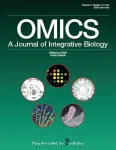(Press-News.org)
The Horizon Europe funded TIER2 project (enhancing Trust, Integrity and Efficiency in Research through next-level Reproducibility) has announced the two consortia which will receive a €5000 monetary award to hold a kick-off meeting for a national Reproducibility Network in their respective countries. The Georgian and Ukrainian awardees were selected among multiple applicants of the TIER2 Open Call which opened in July 2023 (read more here). After a round of reviews, carried out by Thomas Klebel (TIER2), Luka Ursic & Nansi Bralic (Croatian Reproducibility Network), and a fourth reviewer, the two consortia were unanimously elected. The open call was spearheaded by Alexandra Bannach-Brown and Friederike Kohrs from the QUEST Center for Responsible Research at Charité/BIH, a TIER2 project partner.
The Ukrainian consortium, from the Institute for Open Science and Innovation (INOSI), OPTIMA Project Consortium & Lviv Polytechnic National University, comprises researchers with a broad scientific background which already have experience working together in promoting Open Science in Ukraine, particularly within the OPTIMA project and within the Working Group on the National Plan for Open Science development in Ukraine. In response to what motivated them in participating in the open call, they state that: “Ukraine needs good science to make good decisions in all spheres. This is particularly relevant during the war and will be needed for the post-war recovery”. Regarding their future plans for the Ukrainian Reproducibility Network, they share: “In the short term, the ambition is to kickstart the network of experts, able to lead the discussion on reproducibility and become a role model on the national level. In the long term, the ambition is, of course, to make reproducibility in research a standard by default. This has to be supported by co-creation and sharing best practices, research on research, and making an impact on national policy. We hope that the network will be viable and ambitious enough to compete for international grant funding to achieve this”. With regard to the global state of reproducibility & scientific integrity, they say: “The progress on the global level is visible, but it's only the beginning of a long way forward. The key to achieving the goal is a strong research culture that is often missing in many academic communities. Openness and transparency in performing and communicating research are the basic things to be established.”
The consortium from Georgia, comprises three researchers from different institutions: the Department of Human Anatomy at Tbilisi State Medical University (TSMU), the Faculty of Medicine at Tbilisi State University (TSU), the Institute of Morphology, and the Scientific Department at Caucasus International University (CIU). Brought together as team members of a research group, a Horizon Europe grant coordinator alerted them about the TIER2 open call announcement. The team was immediately drawn to it, sharing that: “During our individual and collective research endeavors, we frequently encountered challenges in reproducing experiment results, a phenomenon that was not isolated to our work but across the global research landscape. [...] a consolidated effort was needed to elevate the state of research in our nation. [...] Moreover, the opportunity to foster a Reproducibility Network (RN) in Georgia provided a platform to unite our nation's fragmented research endeavors, drive standards in research methodologies, and integrate with the global scientific community”. Regarding their short-term plans after receiving the award, they list the following: “Organize the foundational meeting, bringing together stakeholders from various Georgian research institutions, to lay down the operational blueprint for the RN; Launch training sessions that cover core skills in reproducibility, data management, and research design; Conduct sessions in universities and community centers to educate and foster trust in scientific research: Set up an official RN website and leverage social media for real-time updates and engagements”. In the long term, the team envisions to “Establish partnerships with International Reproducibility Networks, facilitating knowledge exchange and joint research projects and collaborate with Georgian institutions to advocate for policies emphasizing reproducibility and transparency”. Their global vision for the state of reproducibility and scientific integrity “is one where every piece of research, irrespective of its domain or geography, stands the test of time and validation. We envision a scientific landscape where collaboration, transparency, and inclusivity aren't just ideals but are deeply integrated into research methodologies.”
When we asked the reviewers what they would say to the awardees, Luka advised them to “keep to their ideas/goals with the networks. People still don't understand it well and there is a significant resistance among researchers. While this is a barrier, it's also a goal for them - we're attempting to change a culture, and it's not an easy task in any context”, while Nansi “would like to congratulate them on their well-deserved success and wish[es] them the best of luck in their future reproducibility endeavors”.
The TIER2 team joins the reviewers in congratulating the awardees and expressing our commitment to support the motivated consortia in their Reproducibility Network kick-off and beyond.
#############################################################################
TIER2 receives funding from the European Union's Horizon Europe research and innovation programme under grant agreement No 101094817.
Views and opinions expressed are those of the author(s) only and do not necessarily reflect those of the European Union or the European Commission. Neither the EU nor the EC can be held responsible for them.
END
A new article in the peer-reviewed OMICS: A Journal of Integrative Biology examines the ethical, equity, and societal/relational implications of digital health technologies for precision medicine in end-of-life care. Click here to read the article now.
John Noel Viana, PhD, from The Australian National University, and coauthors specifically assess the implications of two precision health modalities: (1) integrated systems biology/multi-omics analysis for disease prognostication; and (2) digital health technologies for health status monitoring and communication. The investigators provide ...
Hundreds of clinics may be using false and misleading statements in online advertising campaigns by offering off-label and unapproved ketamine to treat a variety of mental health and pain conditions, according to researchers at the University of Colorado Anschutz Medical Campus and Johns Hopkins University.
The study was published in JAMA Network Open.
“These are expensive treatments for which patients generally must pay out of pocket and the evidence base is often not robust for many of the advertised uses,” said Michael DiStefano, PhD, assistant professor in the Department of Clinical Pharmacy at the CU Skaggs School of Pharmacy ...
Bottom Line: The U.S. Preventive Services Task Force (USPSTF) concludes that the current evidence is insufficient to assess the balance of benefits and harms of routine screening performed by primary care clinicians for oral health conditions, including dental caries, in children and adolescents ages 5 to 17. The USPSTF also concludes that the current evidence is insufficient to assess the balance of benefits and harms of preventive interventions performed by primary care clinicians for oral health conditions, including dental caries, in children and adolescents ages 5 to 17. Untreated oral health conditions in children can lead to serious infections ...
Bottom Line: The U.S. Preventive Services Task Force (USPSTF) concludes that the current evidence is insufficient to assess the balance of benefits and harms of routine screening performed by primary care clinicians for oral health conditions, including dental caries or periodontal-related disease, in adults. The USPSTF also concludes that the current evidence is insufficient to assess the balance of benefits and harms of preventive interventions performed by primary care clinicians for oral health conditions, ...
The largest floating ice shelves in the polar ice sheet have lost more than a third of their volume since 1978. In a study to be published on 7 November in Nature Communications, scientists from the CNRS1, alongside their Danish and American colleagues, have established that most of this thinning is due to the rise in surrounding ocean temperatures, which causes the glaciers’ floating extensions to melt. Until now, the glaciers in this region were considered to be stable, unlike more sensitive areas of the polar ice cap, which began to weaken in the mid-1980s.
Located ...
About The Study: The findings of this study suggest that maintenance immunosuppressive drugs are associated with an increased risk of COVID-19 hospitalization in solid organ transplant recipients. These results should be considered by clinicians treating transplant recipients and may help inform epidemic-related decisions for this population in the future.
Authors: Epiphane Kolla, M.D., M.P.H., of French National Health Insurance in Saint-Denis, France, is the corresponding author.
To access the embargoed study: Visit our For The Media website at this link https://media.jamanetwork.com/
(doi: 10.1001/jamanetworkopen.2023.42006)
Editor’s ...
About The Study: In a population-based study of 6,790 adult patients with emergency medical services–treated out-of-hospital cardiac arrest (OHCA) from a U.S. metropolitan system, the incidence of overdose related out-of-hospital cardiac arrest increased significantly from 2015 to 2021. The greatest increase was observed among patients with a combined stimulant-opioid OHCA. Presentation and outcome differed according to the drug-specific profile. The combination of increasing incidence and lower survival among patients with an opioid-stimulant OHCA supports prevention and treatment initiatives ...
A new report in Nature Geoscience has brought to light the challenge of air pollution levels in Africa and why international action is needed to combat it.
Over the last 50 years African nations have suffered from rapidly deteriorating air quality, making their cities some of the most polluted in the world. Particulate matter concentration levels are now five to ten levels greater than that recommended by the World Health Organisation, with the situation predicted to worsen as populations grow and industrialization accelerates.
However, far too little has been ...
Francis Crick Institute press release
Under strict embargo: 16:00hrs GMT Tuesday 7 November 2023
Peer reviewed
Observational study
People
Body changes up to eight years before inflammatory bowel disease diagnosis
Researchers at the Francis Crick Institute and Aalborg University in Copenhagen have shown that changes can be detected in blood tests up to eight years before a diagnosis of Crohn’s disease and up to three years before a diagnosis of ulcerative colitis.
This means the beginnings of inflammatory bowel diseases start a long time before symptoms occur, and in the future may provide an opportunity for doctors to take preventative ...
Many parents experience stress, anxiety, and depressive symptoms throughout their lives, particularly during times of transition, such as pregnancy and children’s entry into school. Studies have generally found that high levels of anxiety and depression in parents are linked to poorer behavioural and cognitive outcomes in children.
A team of researchers led by Tina Montreuil, Associate Professor in McGill’s Department of Educational and Counselling Psychology and Scientist in the Child Health and Human ...


